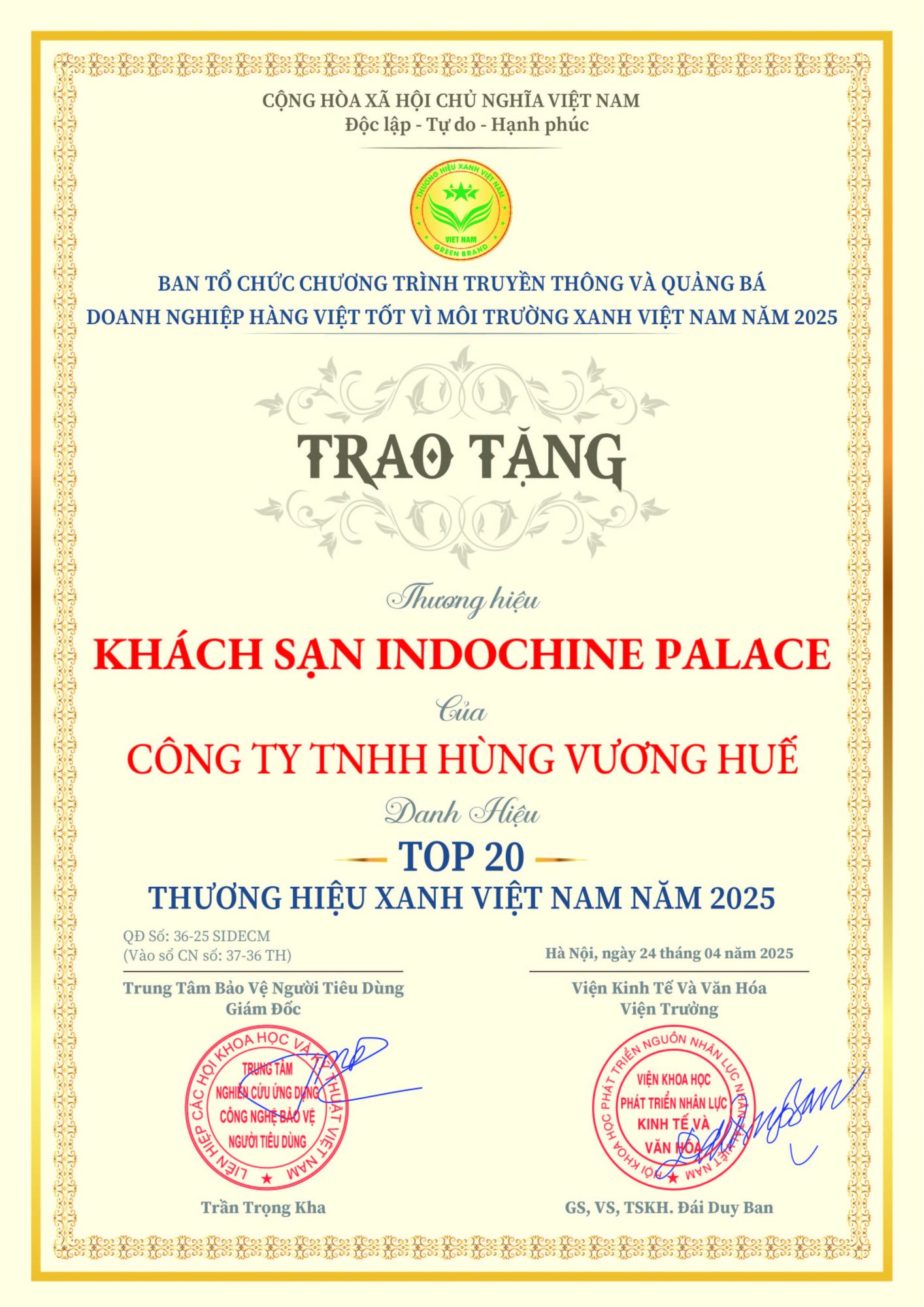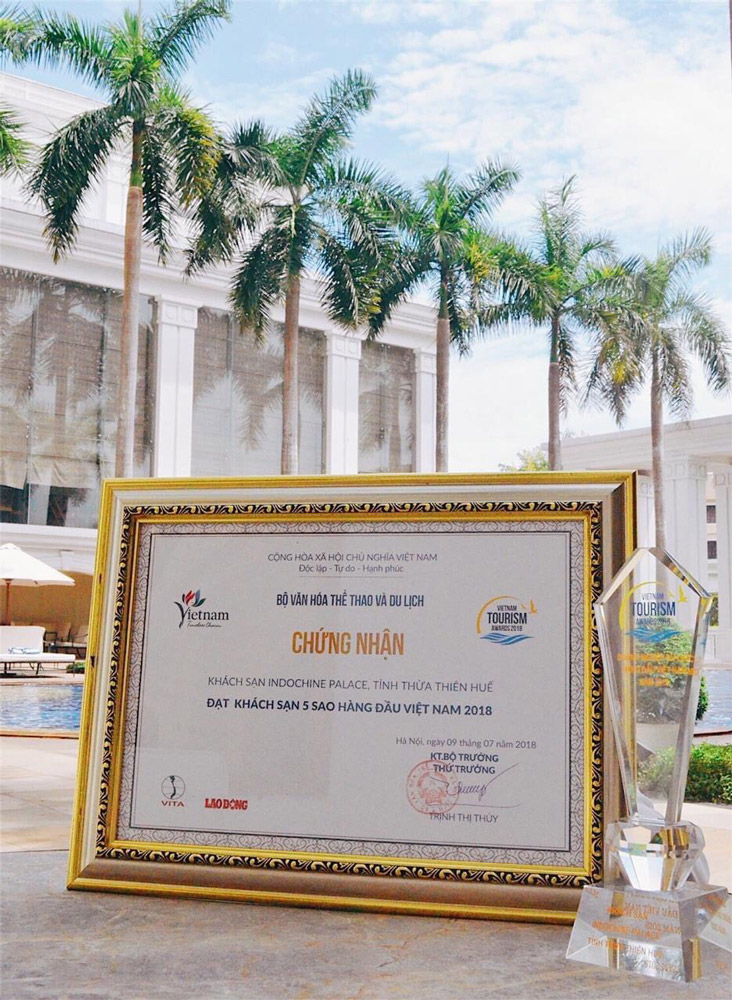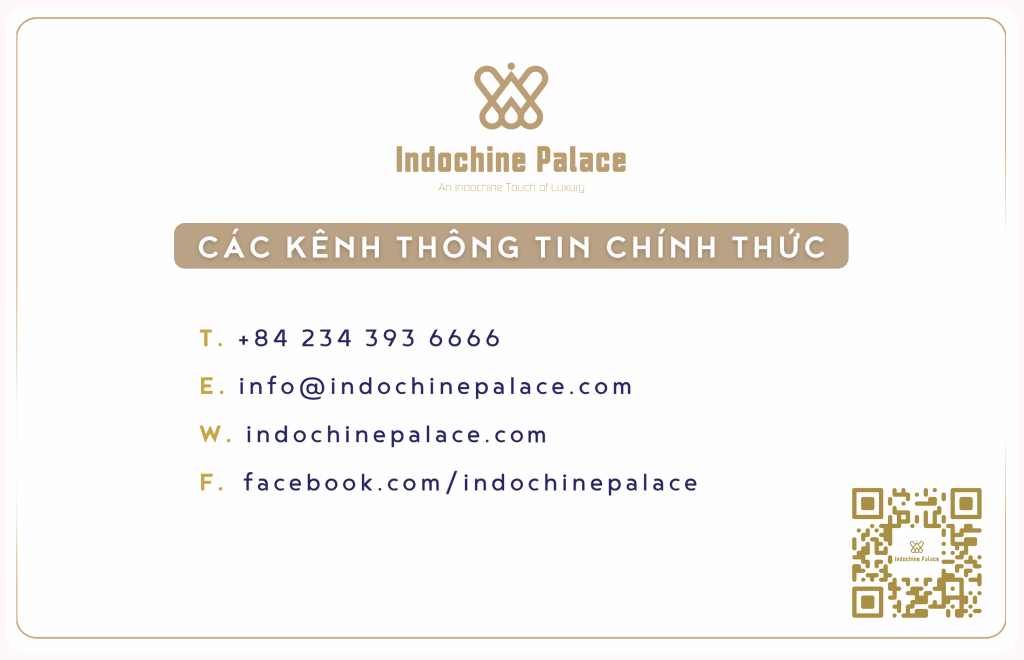The grandeur of the former Royal city of Hue, and the romance of Indochine culture, can now be re-experienced, relived, and enjoyed again in the Indochine Palace. Hue’s only world-class hotel gives every visitor and guest the rare opportunity to indulge in the “Indochine Palace Experience,” the pinnacle of luxury, refinement, elegance, and hospitality that only a true lord of a Noble House can orchestrate and dispense with the skill of a maestro.
A short 1 hour and 10 minutes flight from Ho Chi Minh City or 1 hour flight from Hanoi, and only 20 minutes drive from the airport, The Palace holds court in downtown Hue City, a UNESCO-listed World Heritage site, close to the Perfume River and the historic Royal Citadel.
The Indochine Palace is surrounded by lush exotic gardens, making it an outstanding landmark in Hue and setting new standards of excellence that is unmatched anywhere in Vietnam.
This world-class hotel is designed to appeal to the affluent, up-market leisure and business travellers; offering excellent facilities for MICE (meetings, incentives, conferences, and exhibitions) events.



















 31-07-2025
31-07-2025















